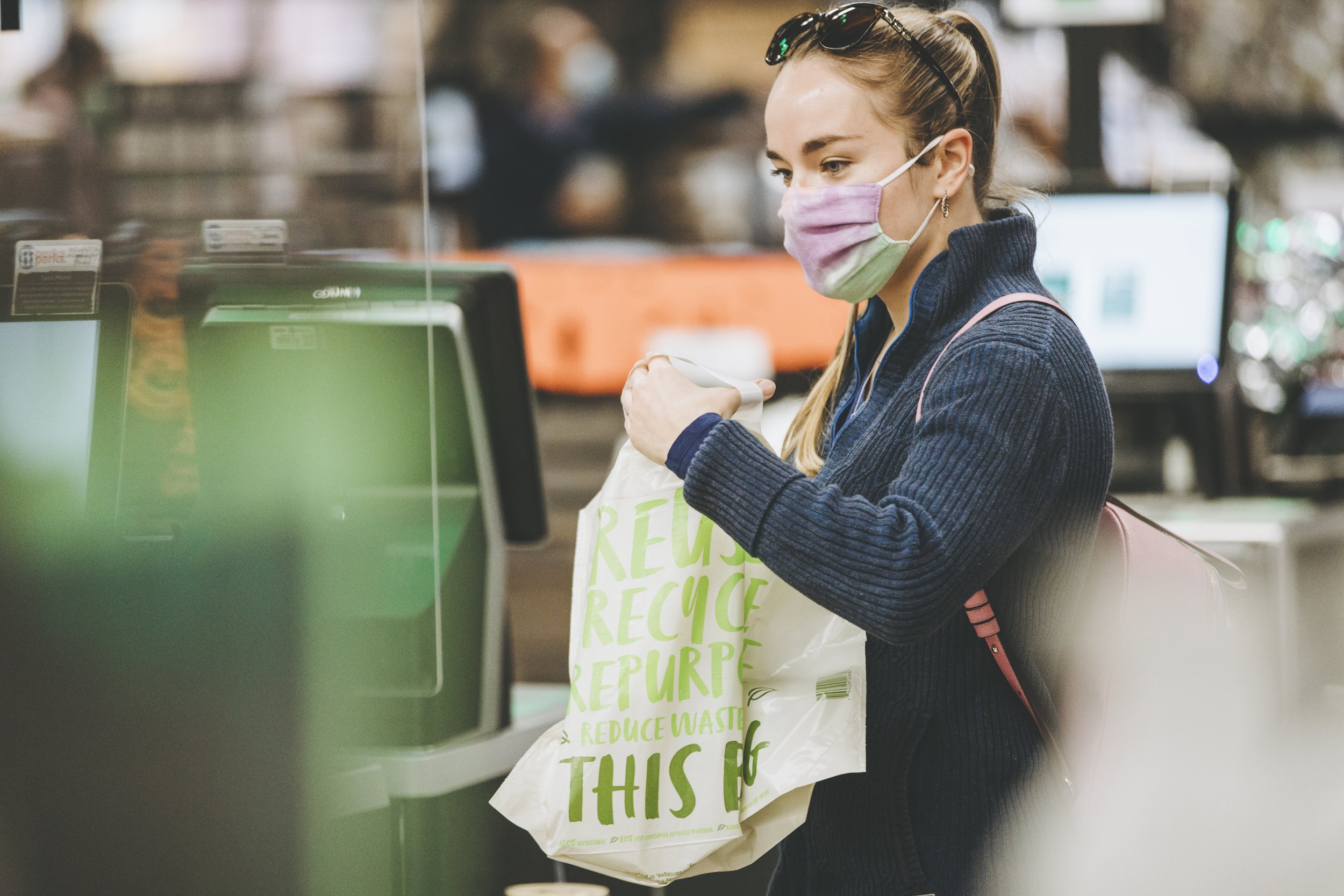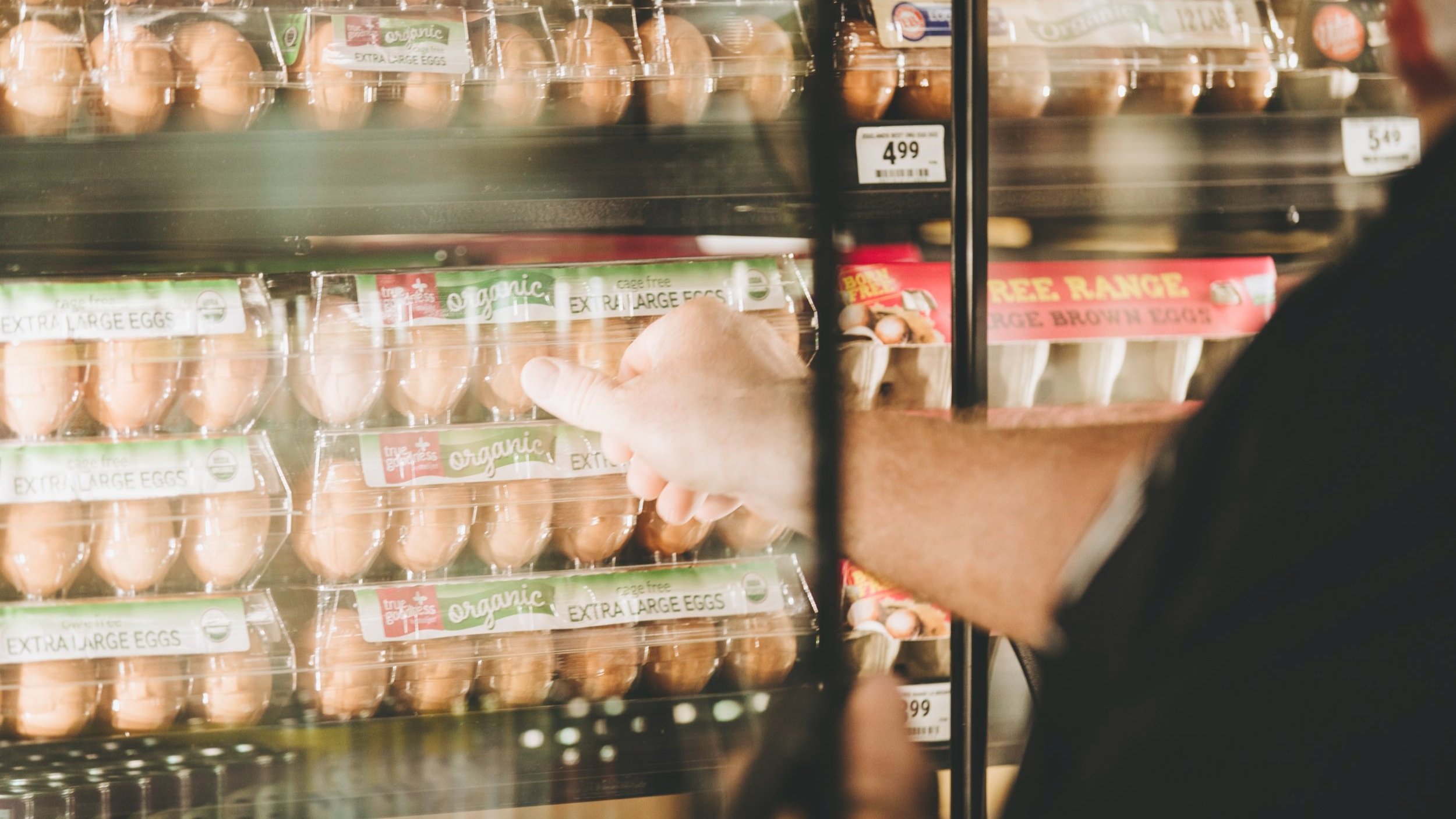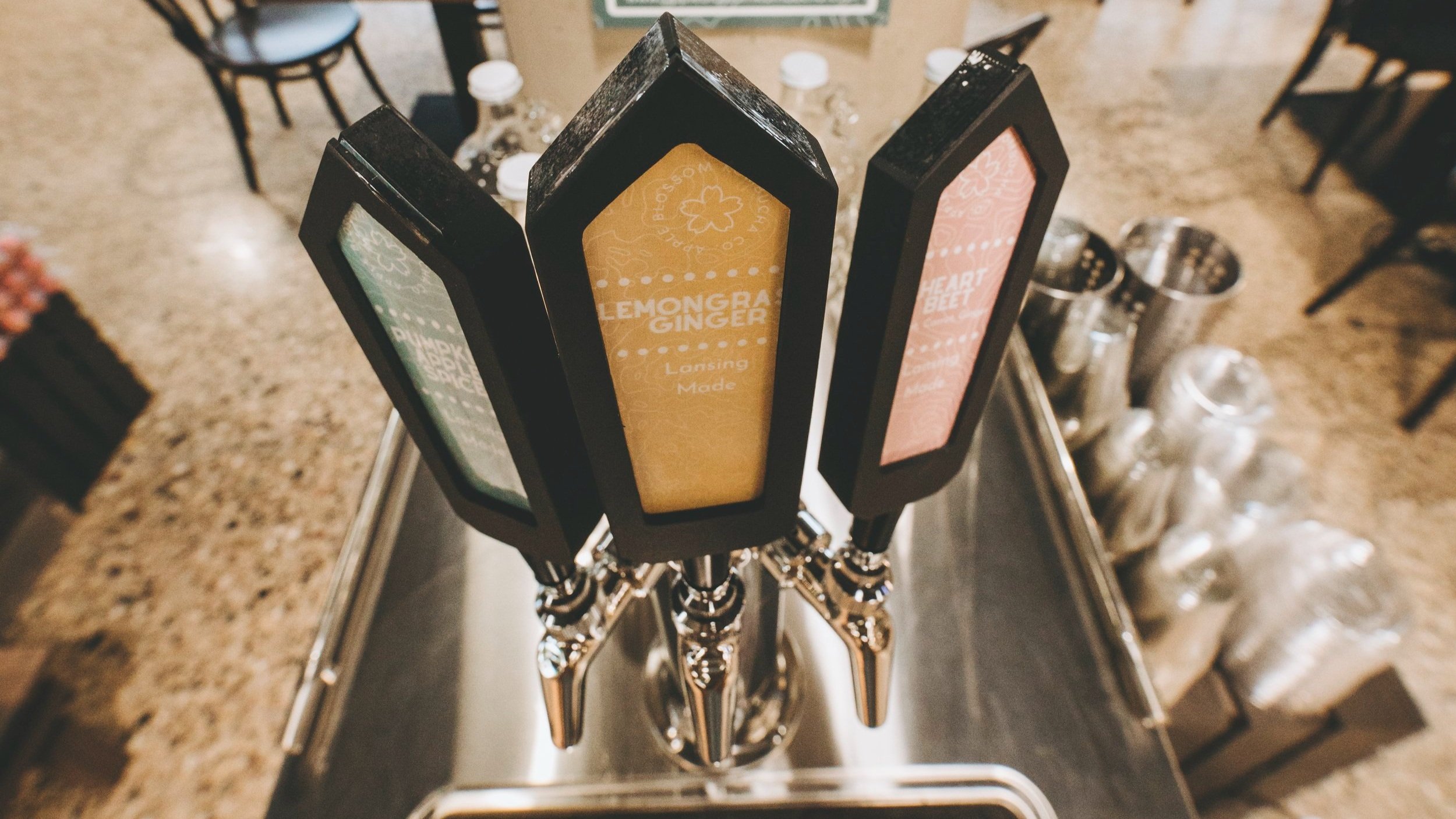1) Reusable Bags
Reusable bags are both convenient and good for the environment – did you know you can fit more items in fewer bags when you use a sturdy, reusable bag? It’s true! Choose from a variety of reusable bags at Capital City Market and be able to hold up to 50 pounds of groceries per bag.
2) (P)recycling
It’s like recycling, but earlier. Precycling is considering the end destination of something before you buy it, and allowing that to influence your buying behaviors. When you’re shopping, pay attention to what containers your products are coming in. Here are some examples of common grocery list items that are ideal for precycling!
EGGS
Opt for eggs in a plastic or compostable container instead of a styrofoam container. Plastic is recyclable and a brown paper container is recyclable or compostable, while styrofoam has only one destination: the landfill.
NUT BUTTER
At Capital City Market, you can grind your own nut butter in recyclable containers from Ferris Coffee & Nut Co. Find the grinder in our produce department and select from four varieties, including almonds, cashews, and peanuts.
GROUND COFFEE
Just like our nut butter grinder, you can also get bulk coffee beans from Ferris Coffee at our new bulk bean and grinder in aisle one. Shop your favorite beans by the pound and have the option to grind them at the market, too!
KOMBUCHA
You can fill (and refill!) glass containers at our kombucha tap by Apple Blossom Kombucha. Find it in our produce department! Flavors rotate seasonally.
3) Reach for Reusable Produce Bags
You’re already bringing your own grocery bags – why not add produce bags to the mix? We encourage you to purchase reusable bags for produce, recycle the green plastic produce bags you use in our plastic recycling bins at our entrance, or stop using plastic produce bags altogether – many fruits and vegetables have natural protection in their inedible peels.
4) Start a Compost
According to the City of Lansing Public Service Department, composting is a natural process that reduces the amount of yard waste and turns it into nutrients for your soil.
As much as 35% of household waste is made up of kitchen scraps and yard clippings, which are ideal for backyard composting. Composting is the result of aerobic bacteria, fungi and other micro-organisms breaking down organic materials. The decomposed materials are called compost. Households produce a significant amount of organic material that is well-suited for composting such as vegetative food scraps from the kitchen, dead houseplants, leaves, twigs, grass clippings, garden trimmings and weeds.
Check out this composting guide from the The City of Lansing to learn more about how to get started.
5) Request a Recycling Cart
CART makes it easy to recycle with services for both residential and commercial customers in the City of Lansing. These services are funded through city taxes, making them readily available to all single-family households living in the City of Lansing. Learn everything you need to know about using our recycling services and how to recycle properly here.
*City of Lansing Residents: If you are in need of a recycling cart, please call the CART office at 517-483-4400 and select option 1.
Recycling PRO TIP
The recycling you put in your curbside cart should be loose and clean, so an indoor bag or recycling container is great for this. Simply fill it up in your kitchen, then bring it to your cart to dump before your pickup day. We love Betterbin recycling bags from Public Thread. They’re made in Grand Rapids from upcycled billboard canvas material with purposeful design. Shop Public Thread x Betterbin recycling bags here!
6) Recycle Your Used Plastic Bags
When you’re done using a plastic bag, whether it’s a single-use bag or a reusable bag made from #1, #2, or #4 plastics, you can recycle it at the market! Look for our recycling bins at the entrance – to recycle a variety of plastic bags and flexible plastic films, including but not limited to:
grocery bags
case overwrap
produce wrap
newspaper sleeves
dry cleaning bags
ice bags
(deflated) packaging air pillows
bubble wrap
plastic padded shipping envelopes
LDPE/HDPE films
(clean) food storage bags
bread bags
Find more information about this program at how2recycle.info.
7) Only Buy What You Need
On your next trip, try just buying what you need for a few days at a time instead of buying for an entire week or more. Many cultures make it a habit to shop multiple times a week and we'd love to see you more often. When you shop for what you need, your produce will be fresher, your food will taste better, and you'll have less waste!






